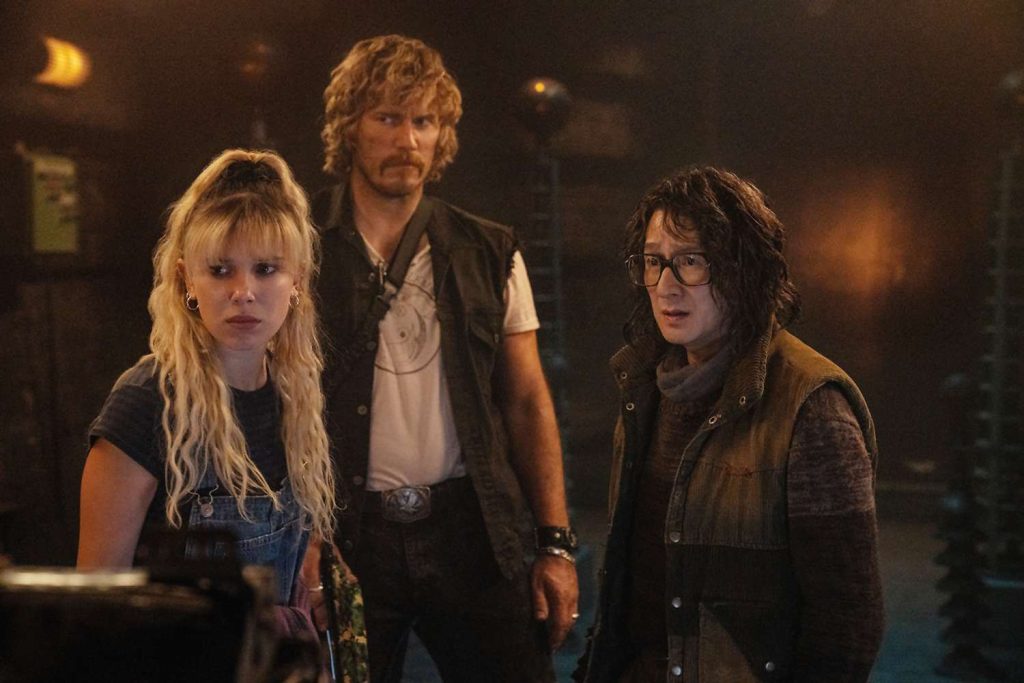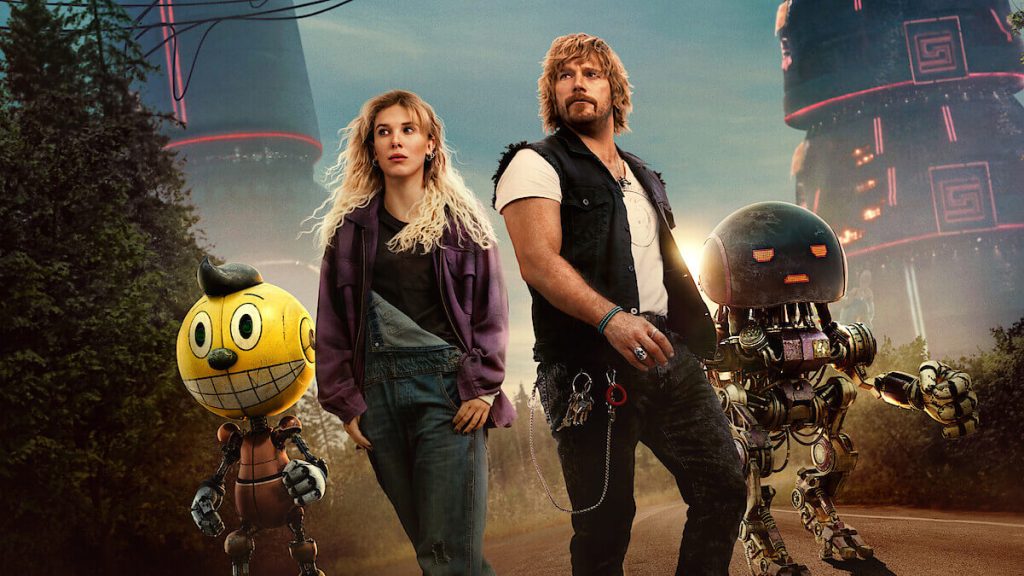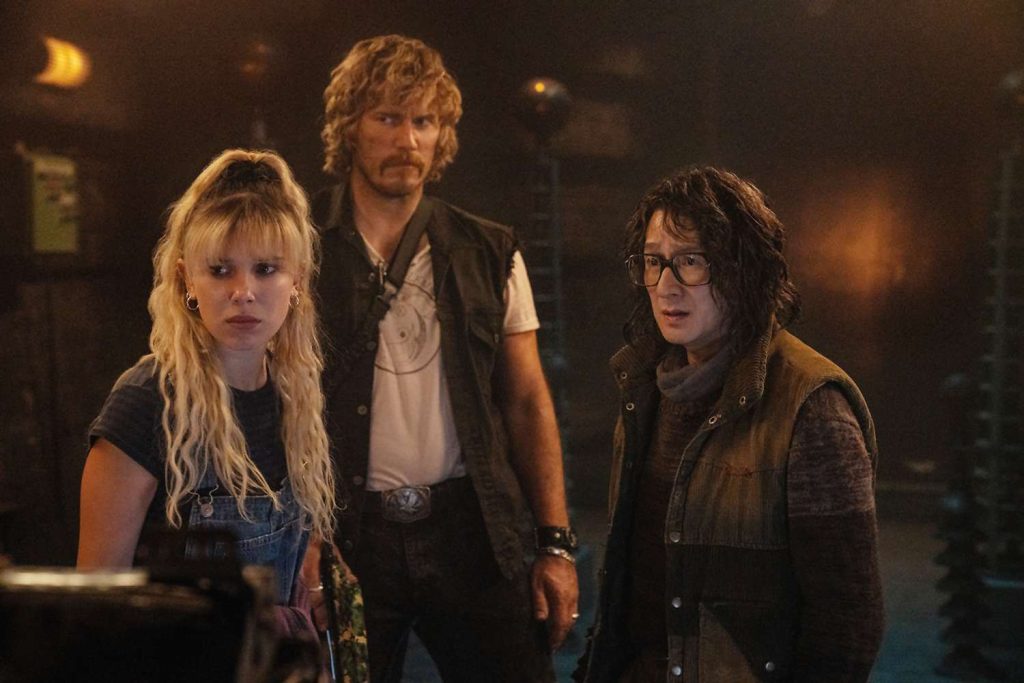World News
The Electric State: Unraveling the Complex Tapestry of Its Conclusion
Introduction
The Electric State, directed by the Russo brothers and starring Millie Bobby Brown and Chris Pratt, transports viewers to an alternate 1990s America—a landscape where the remnants of a human-robot war have left society in disarray. At its core, the narrative follows Michelle, a determined teenager, and Keats, a war veteran, as they embark on a perilous journey to uncover the fate of Michelle’s brother, Christopher. The film intricately weaves themes of technological overreach, human connection, and the essence of consciousness, culminating in an ending that has sparked extensive discussion and analysis.

The Climactic Confrontation: Michelle’s Heart-Wrenching Decision
As Michelle and Keats delve deeper into the operations of Sentre, the corporation responsible for the technological upheaval, they uncover a harrowing truth: Christopher’s consciousness has been harnessed to power Sentre’s Neurocaster technology, effectively rendering him a tool for the company’s nefarious ambitions. Faced with the reality that her brother’s mind is ensnared within this machinery, Michelle confronts an agonizing choice.
In a poignant scene, she decides to disconnect Christopher from life support, a decision that not only liberates his consciousness but also dismantles Sentre’s control over society. This act serves as a catalyst for the collapse of the oppressive system, symbolizing a reclaiming of autonomy for both individuals and the broader community.
The Ambiguous Epilogue: Christopher’s Lingering Presence
The film’s conclusion offers a nuanced exploration of consciousness and legacy. In the final moments, Michelle’s robot companion, Cosmo, exhibits behaviors and responses reminiscent of Christopher, suggesting that aspects of his consciousness may persist within the robotic entity. This subtle implication invites viewers to ponder the boundaries between human identity and artificial constructs, as well as the enduring impact of personal connections beyond physical existence.
The ambiguity of this ending encourages a reflective consideration of the possibilities inherent in the fusion of human and artificial intelligence. It leaves audiences questioning whether Christopher’s soul has been preserved in some form or if Cosmo’s programming has simply adapted based on past interactions.

Thematic Resonance: Human Connection Amidst Technological Dominance
Throughout The Electric State, the pervasive influence of technology serves as both a backdrop and a central antagonist. The populace’s immersion in virtual realities, facilitated by Sentre’s devices, underscores a societal drift away from genuine human interactions. Michelle’s journey, culminating in her decisive action against Sentre, embodies a clarion call to re-establish authentic connections in a world increasingly dominated by artificial interfaces.
The film critiques the allure of escapism through technology, advocating for a return to tangible relationships and experiences. It raises critical questions about the cost of technological advancements when they come at the expense of real-world connections.
Character Dynamics: The Evolution of Michelle and Keats
The relationship between Michelle and Keats evolves from a pragmatic alliance into a profound partnership emblematic of resilience and trust. Keats, portrayed as a seasoned yet disillusioned veteran, finds renewed purpose through Michelle’s unwavering determination. Their interactions highlight the potential for solidarity amidst adversity and the redemptive power of shared goals.
Michelle, on the other hand, matures through her experiences, transitioning from a hopeful but naïve traveler into a determined force for change. Her willingness to challenge the system, face loss, and embrace uncertainty cements her as a compelling protagonist who embodies the film’s core message: the strength of the human spirit in the face of overwhelming odds.
Implications and Speculations: The Future of Human-Robot Coexistence
The film’s ending, with the suggestion of Christopher’s consciousness residing within Cosmo, opens avenues for contemplation about the future trajectory of human-robot relationships. It raises questions about the ethical dimensions of consciousness transfer, the potential for robots to embody human traits, and the evolving definition of personhood in a technologically advanced society.
This speculative aspect of the narrative invites discourse on the possibilities and perils of integrating human consciousness with artificial platforms. Could a future exist where loved ones are preserved in digital forms? If so, what does that mean for the way we process grief and memory? The Electric State leaves these questions open-ended, challenging viewers to consider the moral implications of a world where humanity and artificial intelligence become increasingly intertwined.
Conclusion
The Electric State offers a multifaceted narrative that challenges viewers to reflect on the intricate interplay between humanity and technology. Through its complex characters and thought-provoking plot, the film underscores the enduring significance of human connection in an era increasingly captivated by virtual realities. The ambiguous yet poignant conclusion serves as a testament to the resilience of the human spirit and the enduring quest for authenticity amidst the encroachment of artificial constructs.
From thedragonfashion


